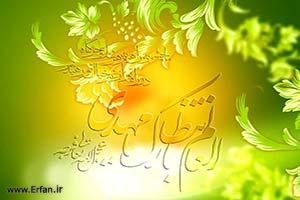
When Imam Mahdi (as) was asked how the ummah could benefit from his presence whilst in occultation, he answered that just like the sun when it is covered by clouds. We would not be able to directly see such a sun, but we believe there is one and we benefit from its effects, such as the light it provides enabling us to see.
According to Sunni Muslims the scholars are responsible for guiding the ummah, though they do not believe in the Imam under Occultation. These scholars are sometimes referred to as Murshid, or Mujaddid.
According to Shi'ah belief Imam Al-Mahdi (as) is the only Holy guide, and he himself has explained how his guidance will work under his deputation. It has been mentioned in specific narrations that Al-Mahdi (as) has told us to address questions concerning new issues to those specialized in religious knowledge.
Within Shi'ah thought there are differing theories concerning the appointment of a specific individual to be deputy to the Imam during Occultation. Such differences arise through the interpretation of jurisprudence.
Some jurisprudents believe in the 'Wilaayat al-Faqeeh', which means the qualified socio-political leader, who would guide the people under the Imam's Occultation. Other jurisprudence believe only in 'Marja'a taqleed, whereby people would follow the qualified scholar in religious matters solely. However it is a fact that both these theories can work side by side without any potential conflicts, and both have proven to be fruitful and practicable.
Adapted from the book: "The Awaited Saviour; Questions and Answers"













